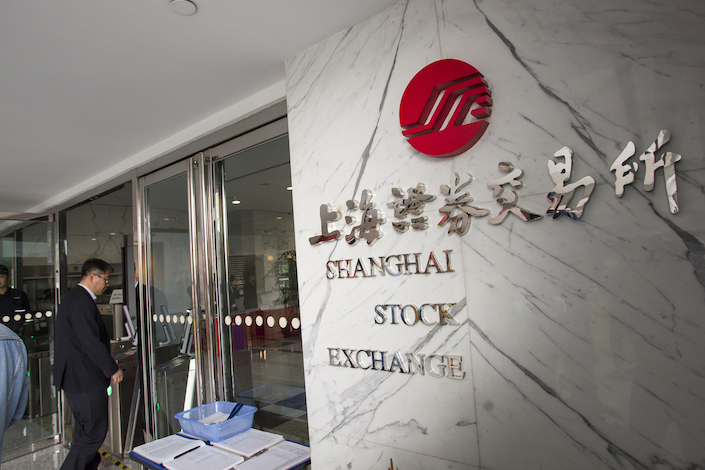Shanghai Bourse to Evaluate Major Revamp of Benchmark Index

The Shanghai Stock Exchange assigned a special team of experts to study a potential overhaul of its benchmark index, the first move in nearly three decades to make the index better reflect China’s fast-evolving economy.
The team consists of scholars, foreign index experts, brokerage researchers and fund managers and will meet soon to study the revision, the Shanghai bourse said Friday.
The bourse will draw on experiences from major international indexes and carry out revisions based on scientific analysis and open communications to address market concerns, the Shanghai exchange said.
There have been increasing calls for methodology changes to the 29-year-old Shanghai composite index as investors and experts complained it fails to capture China’s rising new emerging sectors and reflect real economic conditions. The Shanghai index differs from major global indexes such as the S&P 500 Index in the way it calculates market value and the timing for including newly listed stocks, among other issues.
Launched in July 1991, the Shanghai Stock Exchange Composite Index tracks 1,555 stocks and is dominated by financial and energy companies. Despite China’s fast-expanding economy, the index has remained little changed, hovering around 3,000 over the past 10 years. That compares with the more than 171% rise of the S&P 500 Index during that period.
The rival Shenzhen Stock Exchange’s Component Index calculates companies’ values in a different way, and the exchange includes more small companies and tech companies. Over the past 10 years, the index has fallen as low as 752 in 2012 and climbed as high as 3,052 in 2015, though it’s hovered mostly around 2,000 since 2016.
“The Shanghai index has shown distortion in its 30 years’ operation,” said Dong Dengxin, director of Financial Securities Institute of Wuhan University of Science and Technology. “The index has been slow to reflect the structural changes and capture the trend of leading stocks.”
Financial companies including Industrial & Commercial Bank of China and Agricultural Bank of China Ltd. make up more than a third of the index’s weighting, while the industrial sector, which includes PetroChina Co., accounts for more than 16% of the capitalization-weighted index. Meanwhile, China’s high-flying tech giants such as Alibaba Group Holding Ltd., Tencent Holdings Ltd. and JD.com Inc. are absent from the market.
During last month’s gathering of national legislators and political advisors, several delegates proposed revising the Shanghai index, including removing poor-performing stocks and capping the weight of traditional industries.
Bloomberg reported last month that the Shanghai exchange was considering adjusting the timing for adding newly listed stocks to the index and removing some chronically loss-making shares in a major revamp of the benchmark index. The exchange may also calculate a company’s market value for the index based on its free float available for trading instead of total outstanding shares, coming in line with gauges like the S&P 500 Index, Bloomberg reported, citing people familiar with the matter.
Many investors and experts say they expect a revamp to spur the index to climb high above the long-held 3,000 reading and boost the morale of investors.
But methodology adjustments in the Shanghai index won’t be easy given its long incumbency and influence, a market source said. Meanwhile, changes in the index will not fix the fundamental issues in China’s capital market, the person said.
Tian Xuan, a finance professor at Tsinghua University, said he agreed that China’s stock market needs more than index fixing. The sluggish performance of China’s stock market is not only because of the index rules but also deep-rooted problems and distortions, Tian said.
Compared with simply removing loss-making stocks, efforts to enhance corporate governance, tighten requirements on listing companies’ quality and toughen delisting rules are more fundamental solutions to put the capital market on a healthy track in the long run, Tian said.
Bloomberg contributed to this story.
Contact reporter Han Wei (weihan@caixin.com) and editor Bob Simison (bobsimison@caixin.com)
Caixin Global has launched Caixin CEIC Mobile, the mobile-only version of its world-class macroeconomic data platform.
If you’re using the Caixin app, please click here. If you haven’t downloaded the app, please click here.

- MOST POPULAR





